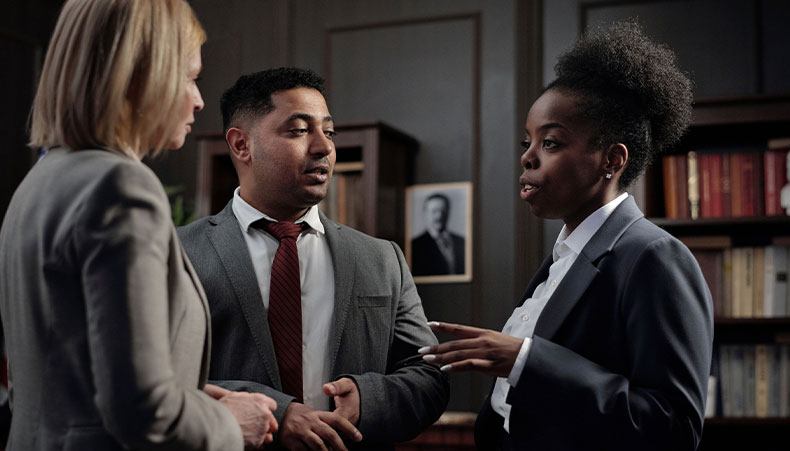
In today’s market, especially in large metropolitan areas, clients can pick and choose from a long list of possible lawyers to handle their legal needs. If things don’t work out from the client’s perspective, they can terminate the representation, fire the lawyer, and hire someone else.
Sometimes the attorney is the one who feels that the client and the lawyer should no longer work together. When this happens, the attorney “withdraws” from the case and terminates the relationship and ceases to represent the client.
If the lawyer leaves before the case concludes, it is stressful for clients because they have to find and hire a new lawyer and often feel that they are starting over from scratch. The client usually worries that the judge might view the attorney leaving in a negative manner and worries that the judge may think the client did something wrong.
Lawyers withdraw from cases all the time, and it usually does not impact the judge’s perception of the client unless the client has had multiple changes in legal counsel with attorneys that have a good reputation with the court. Clients also worry because they have to build a new relationship with a new lawyer and legal team and fear that the case will be further delayed by the change.
Family law cases are often the result of a personal relationship ending. When an attorney withdraws, even if the client agrees with the decision, it can still feel like yet another loss. It is only human for the client to feel abandoned and disappointed.
Two of the most common reasons why attorneys end representation is because of disputes regarding money and conflicts between the lawyer and the client.
Lawsuits, especially those that require a hearing or trial are very expensive. Most people never anticipate needing an attorney, so they don’t plan or save for it. People sometimes simply run out of money and can no longer afford the expensive costs that come with litigation.
Law firms have high expenses and fixed overhead, so attorneys often have little flexibility with prices. The public often has the perception that all lawyers are rich and live like the attorneys on the television show “Suits.” In reality, most lawyers are not rich and have other support staff to think about when it comes to the fees charged. Like most other professions, lawyers simply can’t afford to work for free or to stay in cases where clients aren’t able to pay, regardless of how much they like the client or the case. Other times, lawyers working for firms, do not have the authority to make such financial decisions that have a direct impact to the business.
Conflicts of interest occur for a number of reasons. Your lawyer can’t fight for you and against you at the same time. All states have what’s called a Bar Association that has rules to address what is required to happen when the lawyer and the client are no longer on the same page and each lawyer is required to abide by those rules. In Georgia, the lawyer is required to withdraw from a case if a conflict develops between them and the client. It is important to note that conflicts do not necessarily mean that the lawyer and client are “fighting.” In fact, conflicts are defined under the Georgia Bar Rules relatively broadly and encompass a slew of scenarios from financial reasonings to potential reasonings.
Yes, there are many other reasons why a lawyer may withdraw from a case, some which are completely unrelated to the client at all. The reasons include but are not limited to:
Withdrawing from a case is generally the last resort for a lawyer. Most lawyers are in the profession to help people and accepted the case to do just that! The easiest way to prevent your lawyer from withdrawing is to uphold your end of the contract.
Consider the following Tips for preventing your lawyer from withdrawing:
Nobody wants to be in a situation where they have to hire a lawyer. If you have a family law problem and your children, home, retirement, and future are at stake, it is important to hire an experienced family lawyer like Attorney Sharon Jackson, LLC to help you resolve the challenges. Once you select your legal team, work together to prevent any major hiccups and to get through one of the most challenging times in your life. You deserve to be happy and to find the peace that you need.
The law firm of Attorney Sharon Jackson, LLC offers the highest degree of attention and experience you need to deal with your divorce, child and family law issues in Metro Atlanta courts.
Call us at (678) 909-4100 to schedule a consultation with an experienced member of our team.
Attorney Sharon Jackson LLC
175 Langley Drive, Suite A1
Lawrenceville, GA 30046
Phone: (678) 909-4100